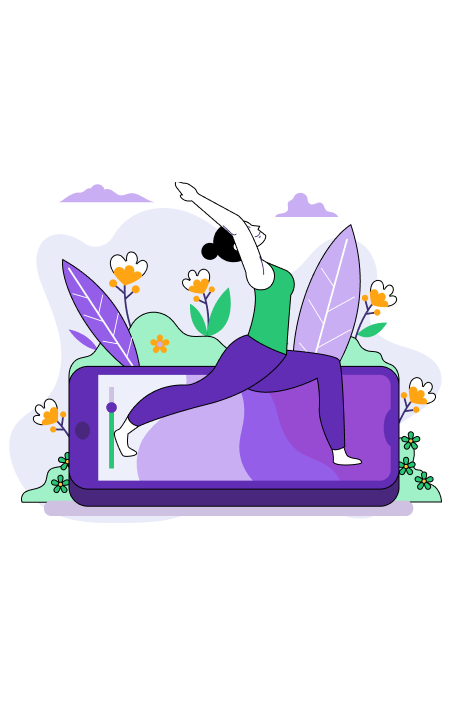
The importance of self-care for content creators online
Self-care is crucial for content creators online, as it allows them to maintain their mental and physical well-being while producing content on a regular basis. Without proper self-care, content creators may experience burnout, depression, and other negative effects. Some ways content creators can practice self-care include setting boundaries, taking breaks, engaging in hobbies outside of creating content, and seeking support from friends and family. It’s important for content creators to be aware of the impact of online harassment and take steps to protect their mental health. Let’s find out more.
High pressure job
Being a content creator can come with a burden to consistently produce high-quality content, grow an audience, and potentially monetize the content. There can be pressure to always be present on social media, as well as pressure to conform to certain standards or trends in the industry. It’s important for them to set realistic expectations for themselves, manage their time and energy effectively, and prioritize self-care to mitigate these pressures.
Setting boundaries
Setting boundaries using the internet involves setting limits on how you use technology, and on the amount of time you spend online. It can also involve setting limits on the type of content you consume and the people you interact with online. Here are some steps you can take to set boundaries using the internet:
1. Set a schedule: Decide on specific times of the day to use the internet. Stick to this schedule as much as possible.
2. Use apps or tools to help you stay on track: There are many apps and tools available that can help you set limits on your internet use, such as website blockers or time trackers.
3. Unsubscribe or unfollow: Unsubscribe from emails or social media accounts that do not add value to your life and give you needless headaches.
4. Take a break: If you find yourself spending too much time on the internet, take a break for a few hours or a day and practice this for a week to see the difference.
5. Find other activities: Find other activities you enjoy and make time for them in your schedule.
6. Be mindful of the people you interact with: Be mindful of the people you interact with online and limit your interactions with those who make you feel uncomfortable.
7. Limit the amount of time spent on social media: Especially on platforms such as Facebook, Instagram and Twitter, where you can easily lose track of time.
8. Seek professional help if needed: If you find it difficult to manage your internet usage, reach out to someone trained on how to handle such situations.
Remember that setting boundaries is a process and it might take some time to find what works best for you. Be patient with yourself and make adjustments as needed.
Rules for better self-care
There are several types of self-care that online creators can practice to maintain their mental and physical well-being while creating content:
1. Physical self-care: This includes activities such as exercise, proper nutrition, and getting enough sleep.
2. Mental self-care: This includes activities such as meditation, journaling, and therapy.
3. Emotional self-care: This includes activities such as identifying and expressing feelings, engaging in activities that bring joy, and setting healthy boundaries.
4. Social self-care: This includes activities such as maintaining healthy relationships, connecting with others in the online creator community, and taking breaks from social media.
5. Spiritual self-care: This includes activities such as practicing mindfulness, connecting with nature, and engaging in religious or spiritual practices, whatever works best for you.
6. Time management self-care: This includes activities such as setting goals, creating a schedule and sticking to it, and taking breaks when necessary.
Tips for content creators
1. Set clear goals for yourself and your content, and make sure they align with your values and passions.
2. Take breaks and make time for self-care, such as exercise, meditation, and spending time with loved ones.
3. Surround yourself with a supportive community, whether it’s in real life or online.
4. Remember that not every piece of content you create will be a success, and that’s okay. Learn from your mistakes and keep moving forward.
5. Stay organized and prioritize your tasks to help manage stress levels.
6. Lastly, try to stay positive and remember that you are doing something you love.
At times, the emotional effects of online harassment can be effectively treated by therapy and counseling. These types of therapy can give patients a private, secure setting in which to process their experiences, deal with their feelings of distress, and create coping mechanisms. Finding a therapist or counselor with particular training in helping those who have experienced online abuse is crucial because they can offer expert assistance and direction. Hope this was a helpful read for you.